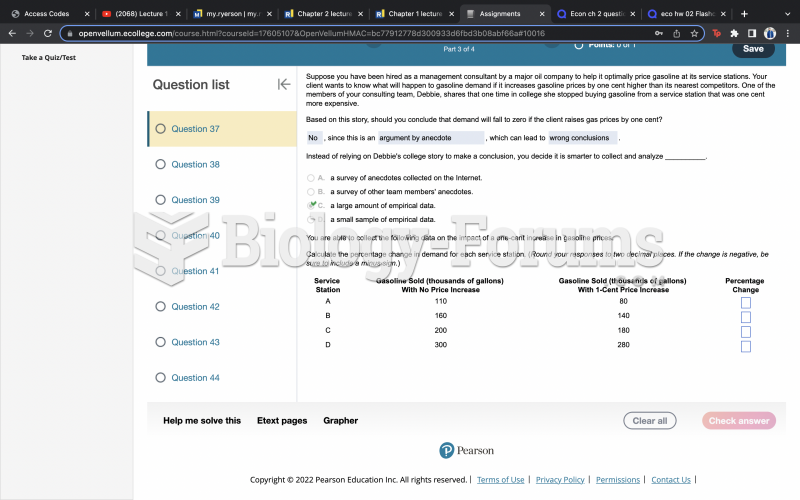|
|
|
Eat fiber! A diet high in fiber can help lower cholesterol levels by as much as 10%.
If all the neurons in the human body were lined up, they would stretch more than 600 miles.
Common abbreviations that cause medication errors include U (unit), mg (milligram), QD (every day), SC (subcutaneous), TIW (three times per week), D/C (discharge or discontinue), HS (at bedtime or "hours of sleep"), cc (cubic centimeters), and AU (each ear).
Acute bronchitis is an inflammation of the breathing tubes (bronchi), which causes increased mucus production and other changes. It is usually caused by bacteria or viruses, can be serious in people who have pulmonary or cardiac diseases, and can lead to pneumonia.
There are over 65,000 known species of protozoa. About 10,000 species are parasitic.







